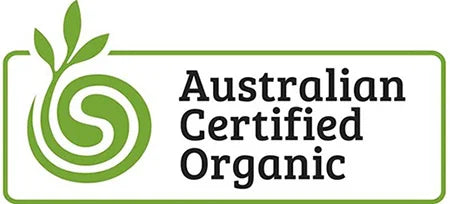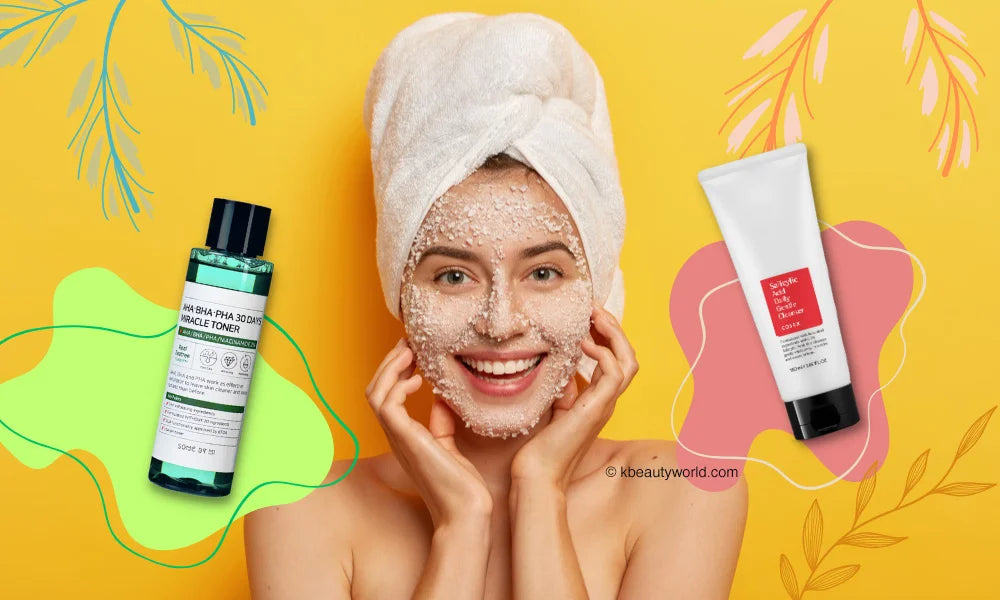Article: How To Choose Organic & Natural Cosmetics and Skin Care?
How To Choose Organic & Natural Cosmetics and Skin Care?
What does organic makeup or natural body lotion mean? We understand that it's confusing because these terms aren't crystal clear. Here, we've compiled a guide to understanding natural cosmetics, organic skin care, and certifications.

Want to incorporate organic and natural cosmetics into your beauty routine? The world of organic, natural, and clean beauty can be both exciting and overwhelming, with a plethora of options to choose from. In this comprehensive guide, we'll explore the different categories of beauty products and certifications so you can make informed choices for your skincare routine.
What are natural cosmetics?
Natural cosmetics are formulated with ingredients derived from nature, such as plant extracts, oils, and minerals. These products avoid the use of synthetic chemicals, fragrances and dyes commonly found in conventional skin care. They prioritize gentle and nourishing ingredients to promote healthy skin.
What is considered natural in skincare?
In cosmetics, "natural" generally refers to ingredients that are found in nature, not made in a lab. Keep in mind, however, that the term "natural" is not regulated, so it's important to look for specific certifications and ingredient lists to ensure the authenticity of natural claims.
What are organic skin care products?
Organic skin care products are made with ingredients that have been grown and processed without the use of synthetic pesticides, fertilizers or genetically modified organisms (GMOs). These products prioritize sustainability and environmental consciousness.
Are all natural products organic?
No, not all natural products are organic. While natural products focus on using ingredients found in nature, organic products use ingredients that have been grown and processed organically.
What is the difference between organic and natural cosmetics?
The main difference lies in the sourcing and processing of ingredients. Natural cosmetics contains ingredients that come from nature source, but not nececessrily organically produced, while organic cosmetics prioritize ingredients grown and processed without synthetic chemicals or GMOs. Organic products are more heavily regulated than natural products.
What is clean beauty?
Clean beauty is basically synonymous with non-toxic beauty and is a movement within the beauty industry that emphasizes the use of products made with safe and ethically sourced ingredients. Clean beauty products are free from potentially harmful substances like parabens, phthalates, sulfates, and synthetic fragrances.

What are the benefits of organic skin care?
People opt for organic skincare because it aligns with their values of sustainability, environmental consciousness, and overall health. Organic skincare promotes the use of ingredients that are free from harmful pesticides and chemicals, reducing their impact on the planet and our bodies.
Organic cosmetics offer a range of benefits, including:
What are the benefits of natural cosmetics?
Natural cosmetics offer numerous benefits for your skin and overall well-being. They are often gentler and less likely to cause irritation or adverse reactions. By avoiding synthetic chemicals, natural cosmetics can help support the skin's health and natural balance of the skin.
Natural cosmetics provide the following advantages:
Organic and natural skincare certifications
When shopping for organic and natural cosmetics, keep an eye out for reputable certifications that verify the authenticity of the product's claims. Here are a few well-known certifications:
Soil Association organic standard

The Soil Association is the UK's leading organic certification body. It certifies organic products in various sectors, including health and beauty. To use Organic in the name of a product and obtain this certificate, the product must contain at least 95% organically grown ingredients. To use Made With Organic Ingredients on a product, it must contain at least 70% organic ingredients.
COSMOS

Founded in Belgium in 2002, COSMOS harmonizes various certifications (Cosmebio, Soil Association, Ecocert Greenlife, BDIH and ICEA) to create an internationally recognized standard for natural and organic cosmetics. It is an organization that applies standards to cosmetic products claiming to be "natural" or "organic".
- COSMOS Organic: A product can only be labelled as organic if 90% or more of its ingredients are organic. Products that do not meet this requirement may be labelled "made with organic ingredients". For cosmetic products "made with organic ingredients", the proportion of organic ingredients can range from 20% for cosmetic products intended to be applied to the body over a long period to 10% for products that are washed off shortly after application.
- COSMOS Natural: This label is best suited to products containing many ingredients that cannot be organic, such as water, salt or clay, e.g. toners, bath salts or face masks. Natural" products are those which may contain some organic ingredients, but not enough to be labelled "organic" or "made from organic products".
ECOCERT

ECOCERT, established in 2003 by a French company, was originally designed to apply to organic farming, but has also been accepted by certain players in the cosmetics industry. It certifies products according to strict environmental and social requirements, including the absence of petrochemical ingredients and the responsible use of natural resources.
To be ECOCERT-certified, a minimum of 95% of the formula's total ingredients must be of natural and organic origin. In addition, ECOCERT product packaging must be biodegradable or recyclable. In addition, they can not contain GMOs, parabens, phenoxyethanol, nanoparticles, silicon, PEGs, synthetic fragrances and colorants, or ingredients of animal origin, with the exception of those naturally produced by animals, such as milk or honey.
The Organic Cosmetic label requires that 95% of all plant-derived ingredients in the formula and 10% of all ingredients, by weight, are organically grown. The Natural Cosmetic label requires 50% and 5% respectively.
NATRUE

Nature is an international labeling program and industry platform for standards and networking for all those striving to apply the same high ethical and ecological principles. Products holding this label will have undergone strict criteria to be called "natural cosmetics", "natural cosmetics with an organic component" or "organic cosmetics".
To qualify for the "Organic Cosmetic" label, 95% of natural ingredients must come from certified organic production. Natural cosmetics with an organic component must comply with the above certificates and contain at least 70% of ingredients from controlled organic production and/or controlled selection of wild plants.
BDIH

BDIH is a non-profit association based in Germany and recognized worldwide for setting ecological and ethical standards and certifying products that meet strict norms, including the use of high-quality ingredients from controlled organic cultivation.
This label authenticates brands for their use of "Certified Natural Cosmetics" - not synthetic - raw materials such as vegetable oils, waxes, plant extracts and essential oils, their impact on the environment, animal safety and product quality.
USDA Organic

USDA is certified organic by the U.S. Department of Agriculture and is an internationally recognized standard for organic labeling. USDA-certified organic products are manufactured without the use of synthetic preservatives, petrochemicals, ionizing radiation or pesticides.
The "USDA organic" label guarantees that products contain at least 95% organic products, in accordance with specific requirements set by the National Organic Program (NOP). There is also the "100% Organic" label, which contains only organically grown ingredients (the USDA seal may appear on the packaging), and "Made with organic ingredients", which means that the product contains at least 70% organic ingredients.
COSMEBIO

Cosmebio is a French association whose members are dedicated to the use of natural and organic cosmetics, and which is certified by an independent control body. They are members of the Cosmos association and mainly use the EcoCert Org. Cosmetic label, which has taken account of both French cosmetics legislation and European cosmetics directives.
NSF

CERTECH

This Canadian label uses the IOS cosmetics standard established by Certech, a private company. To obtain certification, products and all ingredients must not have been tested on animals, and 95% of ingredients must be of natural origin, free from synthetic ingredients, pesticides, harmful preservatives, artificial colorants and fragrances.
Australian Certified Organic (ACO)

The Australian Certified Organic Standard is the regulation for companies that are certified organic by Australian Organic's certification body, Australian Certified Organic, and is one of Australia's most stringent standards. ACO certifies organic cosmetics to the Australian National Standard, as well as to the USDA National Organic Program and European COSMOS standards.
Certified Organic" means that the product contains at least 95% organic ingredients, excluding water, and "Made with Organic Ingredients" means that it contains at least 70% organic ingredients, excluding water.
EWG VERIFIED™ : The non-toxic certification

Founded in 1993, the EWG focuses on chemical safety and bans hazardous substances, certifying products in various sectors such as cosmetics, personal care, textiles, household products, food and water.
The Environmental Working Group certifies products that are non-toxic to human health and the environment. EWG certification means that a product has been subjected to the strictest controls for human health, and that it has been judged safe to use and free from hazardous chemicals. The EWG label is an important clean beauty certification guaranteeing the safety of your make-up or skincare products.
In a nutshell
By familiarizing yourself with these certifications, you can make informed choices and select products that align with your preferences and values.
Embark on your organic and natural skincare journey
Now that you're armed with knowledge about organic and natural cosmetics, it's time to explore the wonderful world of eco-friendly beauty. Embrace the benefits of gentle, nourishing, and sustainable products that will pamper your skin and make you feel good inside and out. Choose wisely, and let your beauty routine reflect your commitment to a healthier, greener future.


Leave a comment
This site is protected by hCaptcha and the hCaptcha Privacy Policy and Terms of Service apply.